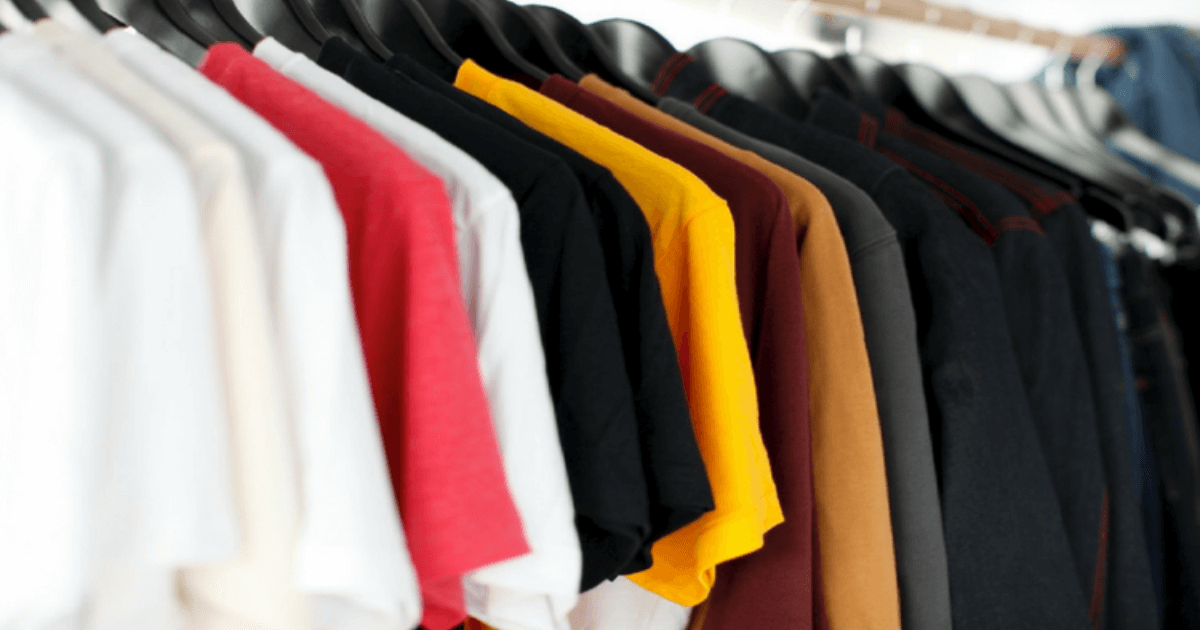Choosing the best material for a t-shirt can feel like a difficult decision. If you’re unsure what material will fit your needs there are a variety of different materials you could use for a printed t-shirt. We’ve put together this handy guide to explain the different types of fabric you can choose from.
What is the Best Material for T shirts?
If you’re looking into how to choose a t shirt for printing, you need to think about what the material is intended for. For example, some t-shirts are better suited to for casual looks, whereas others are best suited for business wear. This is a key way in which you can decide what is the best fabric for your t-shirt.
Cotton
Cotton is the most popular fabric for t-shirts as it’s ideal for everyday wear due to it being soft, breathable and very affordable. There are several types of cotton that can be used for clothing and each of them differ slightly. We’ve broken them down below:
Different types of Cotton
Organic Cotton
Key features of organic cotton include:
- Maintains soil fertility, reducing the need for fertilisers and pesticides
- Minimal impact on the environment
- Very soft to touch
- Strict growing conditions mean its slightly more expensive than basic cotton
Combed Cotton
Key features of combed cotton include:
- Cotton fibres specially treated before being spun into yarn
- Fine brushes used to straighten out fibres and remove any short strands
- Extremely soft, smooth and durable
- Slighlighy more expensive than basic
Slub Cotton
Key features of slub cotton include:
- Slight lumps within the fabric due to the weaving process
- Unique texture sue to the cotton being twisted in the manufacturing process
- Light and airy so they don’t cling to the body
- Doesn’t need to be ironed
Pima/Supima Cotton
Key features of pima/supima cotton include:
- Highest quality cotton available
- Soft and durable due to extra long fibres
- Resists fading and stretching after multiple washes
- Each wash makes the cotton softer
Linen
Linen is made from a flax plant that has a textured weave. It is ideal for summer as it’s moisture-wicking and has a lightweight feel which makes it breathable. The nature of the fabric means that when it’s damp, it’s stronger, so with repeated washes it will only get better. The downside to Linen t-shirts is that they crease very easy and often require careful ironing.
Polyester
There are many advantages of polyester such as it’s strength, quick drying, and ability to machine wash and dry. After several washes a polyester t-shirt will maintain its shape and resist shrinking or stretching, making it an excellent material for workwear or athletic clothing. Where you can, try to stay away from this fabric type; it is made from synthetic fibres and contribute to micro plastics in clothing.
Lycra
This stretchy material is often added to shirts to give more flexibility. It’s also often found in athletic apparel as it allows for better ease of movement and stretch when wearing Lycra.
Flannel
This material has a brushed texture that makes it very popular for the cooler months of the year. It’s most commonly used for shirts. If using Flannel, you should bear in mind that it needs to be washed carefully in order to avoid feeling itchy and shrinking. It’s an unusual choice of material for a t-shirt, but is great for winter and will keep you cosy.
Poly-Cotton
This blend of cotton and polyester provides a light and cool feel. It takes the wrinkle resistance of cotton and the strength of polyester all mixed into one making and is great for everyday use with its soft feel and great shape that holds through any wash.
Now you know about the best materials for t shirts, get in touch with the team today to place your custom branded t-shirts order.
For more useful tips and insights such as upcycling a shirt, how to start a t shirt business and how to design a uniform for your business, head to the Clothes2order blog today.








